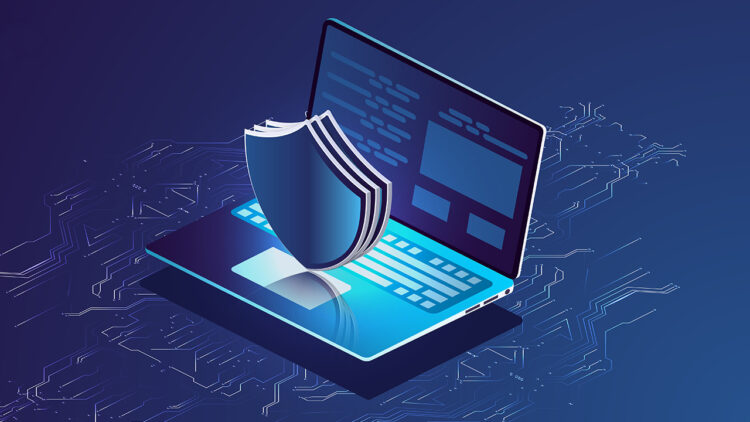Living in one country while working remotely for a company in another has become increasingly feasible in today’s globalized world, thanks to advancements in technology and changes in work culture. If you’re an Indian resident, aspiring to be a Financial Director (FD) or Chief Financial Officer (CFO) working remotely for a company based in London, there are several aspects to consider:
Table of Contents
Remote Work Infrastructure

To effectively work remotely, you’ll need a reliable internet connection, a dedicated workspace, and the necessary hardware and software to fulfil your job responsibilities. This includes access to financial and accounting software, communication tools, and secure data sharing platforms.
Time Zone Management
Living in India while working for a company in London means dealing with a time zone difference. You’ll need to adjust your work schedule to accommodate meetings, deadlines, and communication with colleagues and clients in London. Flexibility in your working hours and good time management skills will be crucial.
Legal and Tax Implications
Before embarking on remote work for an overseas company, it’s important to understand the legal and tax implications. Research any legal requirements or regulations that might apply to your situation. Taxation agreements between India and the UK will play a role in determining your tax obligations.
Employment Agreement

Your employment agreement should clearly outline the terms of your remote work arrangement. This includes expectations, responsibilities, working hours, compensation, benefits, and any other relevant details. Having a comprehensive agreement in place can help avoid misunderstandings down the line.
Communication Skills
Effective communication becomes even more critical when working remotely across borders. You’ll need to be proficient in written and verbal communication, as well as comfortable using video conferencing tools. Clear communication ensures that you remain aligned with your colleagues and superiors despite the physical distance.
Cultural Sensitivity
Working for a London-based company from India requires understanding and appreciating cultural differences. This applies not only to work etiquette but also to business practices, communication styles, and expectations. Being culturally sensitive can foster better relationships and collaboration.
Performance and Accountability

Remote work relies heavily on self-discipline and accountability. As an FD or CFO, you’ll need to deliver results and meet deadlines consistently. Setting clear goals, tracking your progress, and regularly updating your superiors on your accomplishments will be vital.
Security and Data Privacy
Dealing with financial information means prioritizing data security and privacy. Ensure that you’re adhering to the company’s cybersecurity protocols and using secure networks and tools to safeguard sensitive financial data.
Professional Development
Remote work shouldn’t hinder your professional growth. Stay updated on industry trends, attend virtual conferences, and engage in networking opportunities to enhance your skills and knowledge.
Travel Considerations

Depending on the nature of your role and the company’s policies, you might need to visit London occasionally for in-person meetings or strategic planning sessions. Be prepared for potential travel requirements.
Technology has played a transformative role in making remote work not only possible but also highly effective and efficient. Here are some keyways in which technology enables remote work:
High-Speed Internet
High-speed internet connectivity is the backbone of remote work. It allows for seamless communication, real-time collaboration, and access to online tools and resources.
Communication Tools
Various communication tools such as email, instant messaging, video conferencing, and VoIP (Voice over Internet Protocol) services enable remote workers to stay connected with colleagues, clients, and team members across the globe.
Video Conferencing

Platforms like Zoom, Microsoft Teams, and Skype facilitate face-to-face meetings and discussions, making remote communication more personal and effective. Video conferencing tools also support screen sharing, virtual whiteboards, and document collaboration.
Cloud Computing
Cloud-based platforms and services like Google Workspace, Microsoft 365, and Dropbox provide remote workers with easy access to files, documents, and collaborative tools from anywhere with an internet connection.
Collaboration Tools
Project management and collaboration tools like Trello, Asana, Slack, and Microsoft SharePoint enable teams to coordinate tasks, track progress, share documents, and work together on projects regardless of their physical location.
Virtual Private Networks (VPNs)

VPNs create secure connections to a company’s network, allowing remote workers to access internal resources, databases, and systems while maintaining data security.
Remote Desktop Software
Tools like Remote Desktop Protocol (RDP) or virtual desktop infrastructure (VDI) allow users to access their office computers remotely, giving them access to their familiar work environment and software.
Document Sharing and Version Control
Cloud-based document sharing platforms enable real-time collaboration on documents, spreadsheets, and presentations. Version control ensures that everyone is working on the latest version of a file.
Task and Time Tracking Tools
Remote work can be managed more efficiently through tools that help track tasks, monitor time spent on projects, and measure productivity.
Cybersecurity Tools
As remote work involves data sharing and communication over the internet, cybersecurity tools such as firewalls, antivirus software, encryption, and multi-factor authentication are crucial to protect sensitive information.
E-Signature Platforms

Legal and official documents can be signed electronically using e-signature platforms, eliminating the need for physical presence while ensuring legal compliance.
Online Learning and Training Platforms
Remote work often involves continuous learning. Online training platforms and webinars offer opportunities to upskill and stay updated on industry trends.
Augmented Reality (AR) and Virtual Reality (VR)
In some industries, AR and VR technologies allow remote workers to participate in immersive training sessions, virtual meetings, and interactive experiences.
Mobile Apps
Mobile apps enable remote workers to stay connected and productive on smartphones and tablets, enhancing flexibility in where and how work is done.
Automation
Robotic Process Automation (RPA) and workflow automation tools streamline repetitive tasks, freeing up remote workers to focus on more strategic and creative aspects of their roles.
Technology has revolutionised remote work by providing the infrastructure, tools, and platforms needed for effective communication, collaboration, and productivity. As technology continues to evolve, remote work is likely to become even more accessible, convenient, and integrated into the way we work.
In conclusion, living in India while working remotely for a London-based company as an FD or CFO is indeed feasible, but it requires careful planning, effective communication, and a strong sense of professionalism. By managing your time zones, legal and tax obligations, and embracing the digital tools available, you can create a successful and fulfilling remote working arrangement.
FD Capital is a leading international recruiter of FDs and CFOs based in London UK
